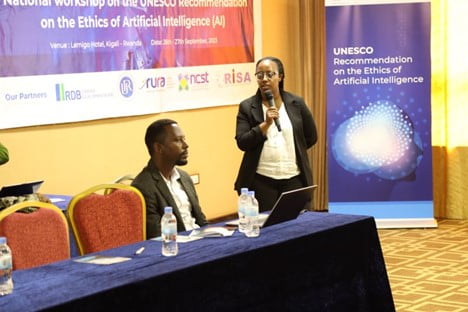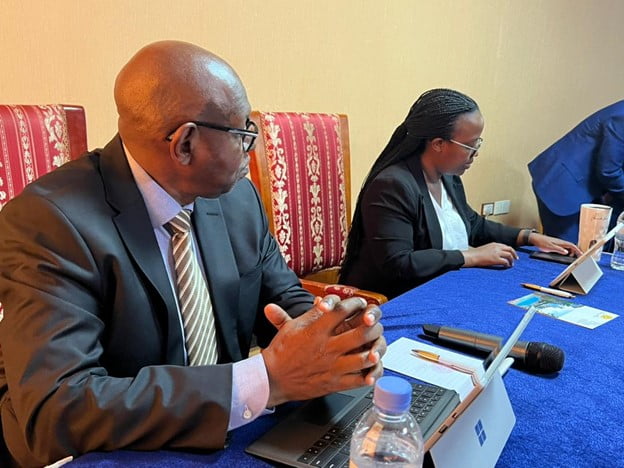By Xaverine Cyiza
As Artificial intelligence emerges in most of various life cornerstones at the global level, experts advise users to consider ethical guidelines to make sure that this intelligence complies with safety measures.
During a recently concluded two-day conference in Kigali by UNESCO that discussed the implementation of recommended Artificial Intelligence (AI) ethics, various actors embarked on how AI can help to advance development with the respect of ethics for sustainable implementation of the recommended AI ethics.
Albert MUTESA, Secretary General of Rwanda National Commission for UNESCO (CNRU), says that the recommendations result from a study that found the essence of the guidelines to help different people and countries when they use of Artificial Intelligence in their activities.
“We can see the role of AI in Education, in Agriculture, in Healthcare in Transportation, and this is a technology that the entire globe relies on to advance their development, these recommendations are indeed very important for people to know how to behave and to value Artificial Intelligence,” Mutesa says.

Albert MUTESA, Secretary General of Rwanda National Commission for UNESCO (CNRU) during the interview with the press.
The recommendations that gathered the experts in a debate were approved during the 2021 UNESCO General Conference to establish safety guidelines for the use of AI in Education, Science, Information and Culture.
Mutesa recommends AI users to monitor this technology to avoid any negative effects that can happen later.
Various actors during this workshop shared ideas on how to improve the use of Artificial Intelligence.
This workshop was organized by the National Commission for UNESCO (CNRU) in partnership with the German Commission for UNESCO (DUK) and other government institutions.
It brought together different government institutions; the Ministry of ICT and Innovation (MINICT), Ministry of Education (MINEDUC), Rwanda Development Board (RDB) Skills Office, Rwanda Information Society Authority (RISA), Rwanda Utilities Regulatory Authority (RURA), National Council of Science and Technology (NCST) and University of Rwanda’ College of Science and Technology (UR-CST) among others.
Esther Kunda, Director General, Innovation and Emerging Technologies in the Ministry of ICT and Innovation (MINICT) highlights some solutions of AI that may be useful at local level, giving an example of how Artificial Intelligence provided some solutions during COVID-19 pandemic.
She also points out that there are learning how to incorporate AI in other sectors including airlines.
“The Ministry of ICT and Innovation (MINICT) has developed with the regulator, RURA, the airline guidelines that try to put in place what is ethic and what kind of materials to help AI solutions developers in regard with the policy,” She says.

Esther Kunda, Director General, Innovation and Emerging Technologies in the Ministry of ICT and Innovation (MINICT).
Ngandeu Ngatta Hugue, a specialist for social and human sciences at UNESCO Regional Office for Eastern Africa said that the recommendations should be implemented in policy areas including governance, environment, data policy, development and international cooperation, environment and ecosystems, gender, culture, education and research, judiciary, communication and information, economy and labour, health, and social well-being.
“Rwanda has developed an AI policy, ethical guidelines on artificial intelligence to be published soon, a data protection policy, and other important bold steps. We want to share the experience of Rwanda with other countries who are struggling to build this step,” noted Ngatta .

(1st, L-R), Albert MUTESA, Secretary General of Rwanda National Commission for UNESCO (CNRU) with Ms. Esther Kunda, Director General, Innovation and Emerging Technologies in the Ministry of ICT and Innovation (MINICT).





